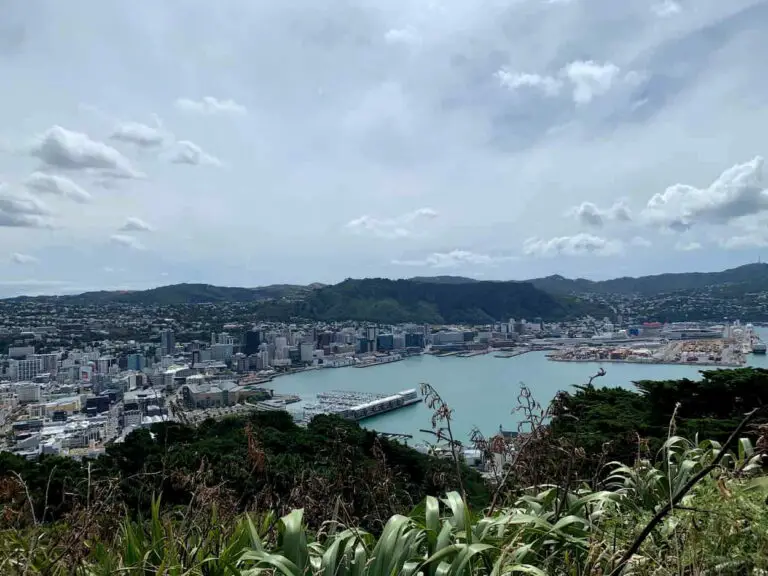Cost of Living in New Zealand in 2024: Ultimate Guide
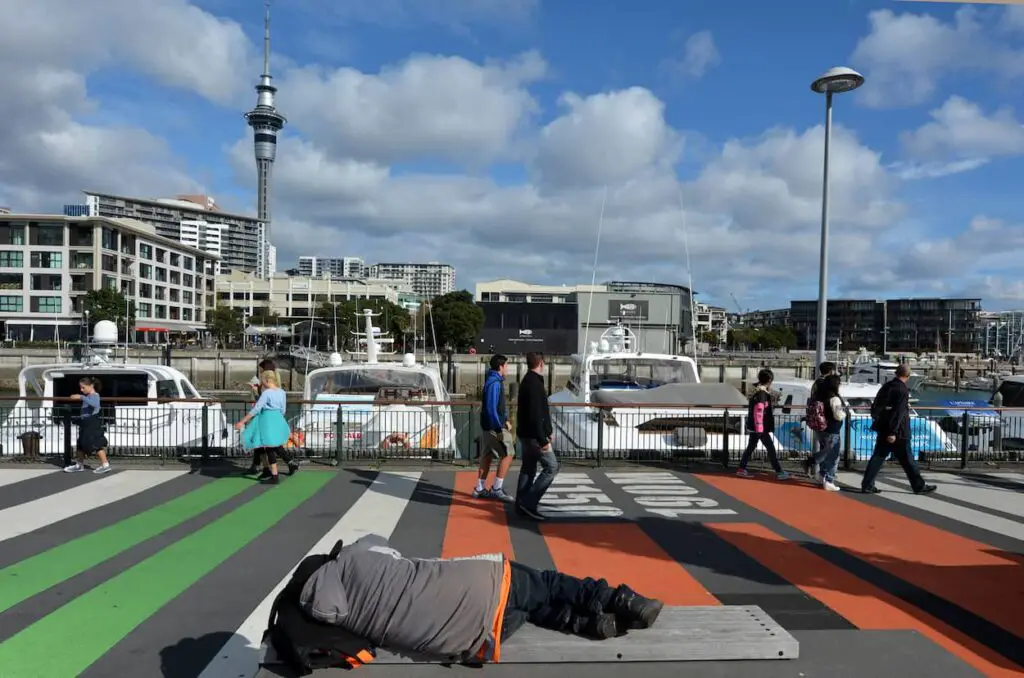
Before you start your immigration journey to New Zealand or book your trip as a visitor, it’s crucial to understand how much things cost here. The fact is that New Zealand is a pretty expensive country to live in and travel to.
If you are planning to move to New Zealand, questions about the cost of living and salaries are the first you will have. Will your salary be enough to cover your expenses? With the average cost of living of NZ$3,500 to NZ$4,500 for a single, an average salary of NZ$58,000 will give you a disposable income of NZ$3,891 per month, which is just enough to cover main expenses without any room for luxuries.
The cities of Auckland and Wellington are the most expensive places to live in New Zealand. Some cities and towns on the South Island tend to be one of the cheapest to live in. You can read more about the cheapest cities to live in New Zealand here. The rent prices have rapidly increased in recent years.
In this guide, we break down the monthly cost of living you need to consider during your time in New Zealand. Since the cost of living is always changing, I will make sure we are keeping this article updated on a regular basis so you can rely on these numbers. See our other articles on the cost of living in New Zealand and a video on YouTube.
- Cost of living in New Zealand vs Australia
- Cost of living in New Zealand vs UK
- Cost of living for a family
- Cost of food
How much money do you need to live in New Zealand?
The cost of living in New Zealand is considered to be high and the most expensive country I have lived in so far. Statistics say that to live comfortably; you need about NZ$7,648 (US$4,949) per month as a family of four and NZ$4,188 (US$2,710) per month as a single.
For example, to live alone in Auckland, a person should have at least NZ$4,791 per month at their disposal, while a family needs around NZ$8,527 per month to live comfortably.
The biggest problem in New Zealand is the rapidly rising cost of housing and food. The rent for a three-bedroom house ranges from NZ$2,400 to NZ$3,200 per month or NZ$600 – NZ$800 per week without utilities and services.
Similarly, the average price of buying a property in the city center is NZ$9,444 and NZ$7,234 per square meter as you move further out of the city.
A typical house price is NZ$1,076,000. To buy a home, you must have at least 20% for a downpayment for an existing property and 10% for a new build.
Example of costs of living in New Zealand
Here is my average cost of living per month in Christchurch, New Zealand:
- Rent: NZ$1,980
- Electricity, gas, and water: NZ$150
- Mobile phone: NZ$54
- Internet: NZ$75
- Groceries: NZ$600
- Insurances: NZ$130
- Fuel: NZ$250
- Gym: NZ$360
- Total bare minimum: NZ$3,600 or US$2,168
However, here I must point several things out as it’s a bit different situation than usual:
- I live in Christchurch, the largest city in South Island
- I am single, with no pets
- I have a car which I use daily where I drive at least 10 km every day
- I never use public transportation
- I cook most of my meals
- I eat only high-quality beef, eggs and bacon
- I buy coffee every day
- I never eat out
- I shop at Countdown
- I only pay for health and car insurance
All factors considered, your average expenses in New Zealand will probably differ from mine. So, look at all these factors and make an estimate for yourself. Besides, the cost of living ranges depending on the location, so Auckland is the most expensive, and Christchurch is one of the most affordable.
Calculate your cost of living in New Zealand by using the calculator below.
Housing
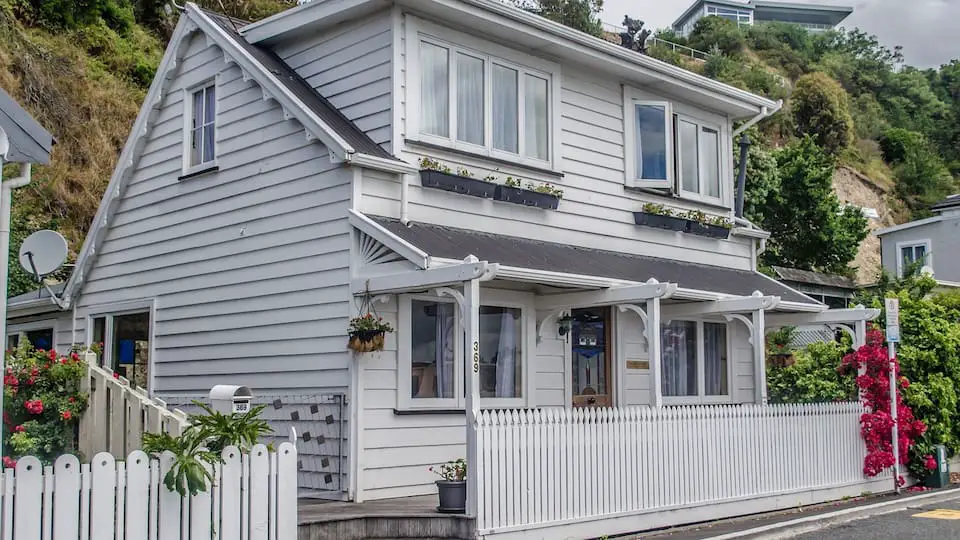
1. Rent
Housing costs will be the most significant part of your cost of living in New Zealand. Both renting and buying a property are pricey. Cities like Auckland and Wellington are known for ridiculous rents and home prices.
For that reason, many people decide to share a flat or house with others (flatting); however, in this article, we only refer to renting an entire property.
Generally, expect to pay NZ$200 to NZ$400 per week for a room and NZ$550 – NZ$800 per week for a single-family house.
Here are the average rent prices in main NZ cities for 2024:
| City | Average weekly rent for a two-bedroom house |
|---|---|
| Auckland | $600 – $800 |
| Wellington | $600 – $750 |
| Christchurch | $550 – $700 |
| Hamilton | $500 – $600 |
| Rotorua | $500 – $650 |
| Dunedin | $550 – $650 |
To save on housing both in New Zealand and Australia, try House sitting, you get an entire house for free!
2. Deposit or bond
In New Zealand, a tenant must pay a bond when renting a property. This deposit can range from one to four weeks of rent.
The homeowners can use this money at the end of the lease to fix the damage they have made. If you leave a house as you found it, you should receive the bond back. The bond is also held in a special bank account instead of the landlord’s private one.
3. Furniture
Finding furnished houses is rare in New Zealand, and if so, they often cost more. Expect to rent an empty house which usually includes kitchen, washing machine & dryer, but it’s not always the case.
Many people source furniture on marketplaces like Trademe.co.nz or at OP shops. Second-hand furniture is significantly less expensive than the new one.
Check out New Zealand’s largest online shopping sites for every need.
4. Utility bills and internet
Utilities like electricity, gas, and water often aren’t included in the rent, but it depends from landlord to landlord, and the location, some services like water might be free of charge.
Your electricity bill will range depending on how frequently you keep the house warm during the winter or cool during the summer. If you like to be comfortable, expect to pay at least NZ$200 monthly for electricity during the winter season and NZ$150 on average.
Internet
Internet is also not included and is to be organized by the tenant. The price will range depending on the provider and package. The average is between NZ$50 to NZ$85 per month.
Also read: Cost of living in New Zealand vs UK.
5. House prices
Houses cost a lot of money in New Zealand, and prices tend to increase year after year, except in 2023. This year, there has been a trend of prices going down.
Nonetheless, the median house price across New Zealand was NZ$991,674 (US$619,410) in the summer of 2022.
| Region or City | Average house price (NZ$) |
|---|---|
| Auckland | 1,339,000 |
| Tauranga | 1,076,000 |
| Wellington City | 1,026,000 |
| Nelson | 807,000 |
| Waikato | 788,550 |
| Napier City | 790,000 |
| Hawkes Bay | 733,500 |
| New Plymouth | 729,000 |
| Otago | 645,000 |
| Queenstown Lakes | 1,716,081 |
| Christchurch | 751,000 |
| Dunedin City | 643,000 |
| Northland | 725,000 |
| Marlborough | 723,000 |
| Manawatu/Wanganui | 585,000 |
| Gisborne | 629,000 |
| Taranaki | 620,000 |
| Southland | 421,500 |
| West Coast | 340,000 |
The house prices in these cities are shown in the table below (January 2023).
| City | House price (NZ$) |
|---|---|
| Invercargill | 466,000 |
| Christchurch | 751,000 |
| Dunedin | 643,000 |
| Rotorua | 670,000 |
| Palmerston North | 648,000 |
| Napier | 790,200 |
| Whangarei | 790,000 |
| Hamilton | 820,900 |
Read more about house prices in New Zealand.
Transportation
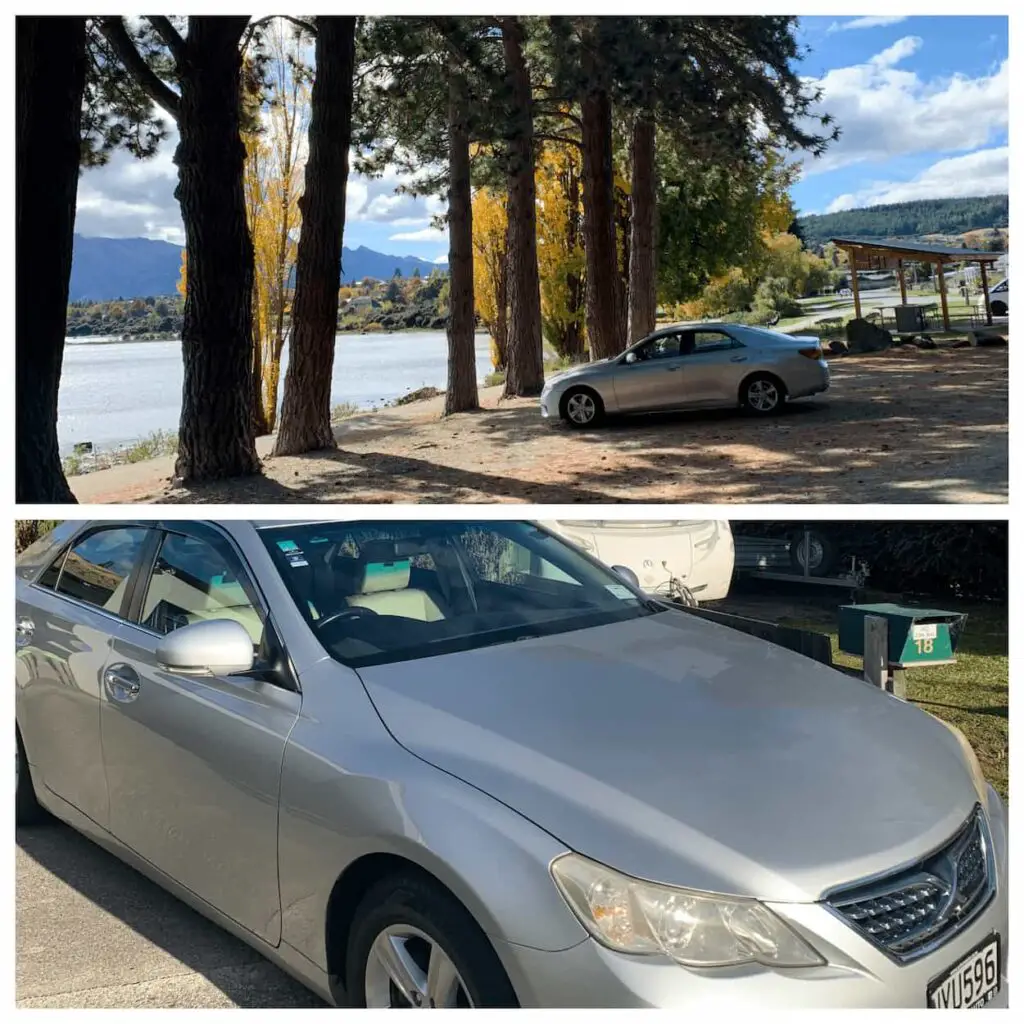
Your monthly transportation cost will depend on the distance of your daily commute and the ways of transport. Needless to say that there are more cars than people in New Zealand. So, guess what vehicle are you going to use?
However, if you are an adventurous type and want to own a bike in New Zealand.
1. Car prices and cost of owning a car
I bought the car just a few days after arriving in New Zealand. In most cases, you will NEED a car here. Some exceptions apply if you live in the CBD of Auckland or Wellington. These cities have a decent public transport network.
When considering the monthly cost of owning a car in Germany, factors like gas consumption and distance driven are very individual.
The average cost of fuel depends on the car’s consumption, but the estimate of 7 – 8 liters per 100 km is a good start. So, if you drive like me, about 40 km per day, then expect to spend about 2,8 liters for 40 km * NZ$2,91 (petrol price) * 30 days = NZ$244 per month on fuel, assuming you use petrol 91 and if your car needs about 7 liters per 100 km.
A liter of 91 petrol costs NZ$2,91, 95 costs NZ$3.10, and unleaded 98 – NZ$3.25. Diesel is the cheapest option – NZ$2.25 per liter. Gas prices have increased significantly in the winter of 2023.
With my Toyota Mark X, I spend NZ$320 every month.
However, fuel is your daily expense, but there are other factors that impact the cost of owning a car in New Zealand. All drivers must have a valid registration and WOF, which is another NZ$200 per year. Plus, membership with AA (automotive association) is highly recommended as they provide emergency pickups. It costs between NZ$80 and NZ$130 per year.
Therefore, the cost of running a car in New Zealand ranges from NZ$4,000 to NZ$6,000 annually, depending on the car, how much you drive, car insurance, and the required service.
But how much do cars cost? Car prices in New Zealand range with your preferences and budget, but most cars sell below the NZ$20,000 threshold. The median price of the used car listing on Trademe.co.nz was NZ$12,000 in 2022 for used cars. That’s average, but you will see many vehicles above and below this threshold.
The median price of all new vehicles has increased from NZ$41,990 in 2019 to $45,990 in 2022.
On a budget side of things, many people buy Toyota Prius, which goes for about NZ$15,000 in good condition and around 2015 year made.
Owning a car in New Zealand is less expensive than in many other countries due to the lower insurance rates and free parking in many areas. Also, fuel isn’t overly expensive.
Car insurance
Car insurance isn’t mandatory in New Zealand, but highly advisable to have one! And there is no point in not getting coverage as it’s inexpensive compared to other countries.
Basic liability insurance can cost about NZ$300 per year, while the most comprehensive – is up to NZ$800. I have comprehensive insurance from AA and pay around NZ$750 per year.
Also, insuring a European car will usually be more expensive than a very widespread Japanese brand.
2. Bicycle prices and the cost of owning one
Compared to Europe, bicycles aren’t cheap in New Zealand, especially if you buy a new one. The cheapest new mountain bike costs about NZ$900. I bought the cheapest one from the large bike online retailer, and it was NZ$809, and it was on sale!
You can definitely find a second-hand bike for about NZ$500, but I don’t think it is worth the hassle. Overall, a bike can be handy and affordable option to commute if the place where you live allows it.
For example, in Christchurch, many people ride a bike to work or school because the city is flat and has cycling lines everywhere. This will be more difficult in hilly Auckland & Wellington.
3. Cost of public transportation
Public transportation is a great way to get around if you live in cities like Auckland, Wellington, or Christchurch. The price of a single ticket is NZ$2,5 to NZ$4, while a monthly pass costs NZ$152 in Wellington.
Food

In the food category, we will make a distinction between shopping in supermarkets and eating out. While eating out in New Zealand could be less expensive than in many other countries. Prices in supermarkets tend to scare away many immigrants and visitors!
Here are some examples:
- Milk: NZ$3 per liter
- Bread: NZ$4 for 0,5 kg
- Eggs: NZ$10 for 12
- Chicken fillets: NZ$16
- Apples: NZ$5
- Oranges: NZ$8
- Tomato: NZ$10
- Lettuce: NZ$5
- Beer: NZ$9
- Meal in a restaurant: NZ$25
- Cappuccino: NZ$5
1. Supermarkets
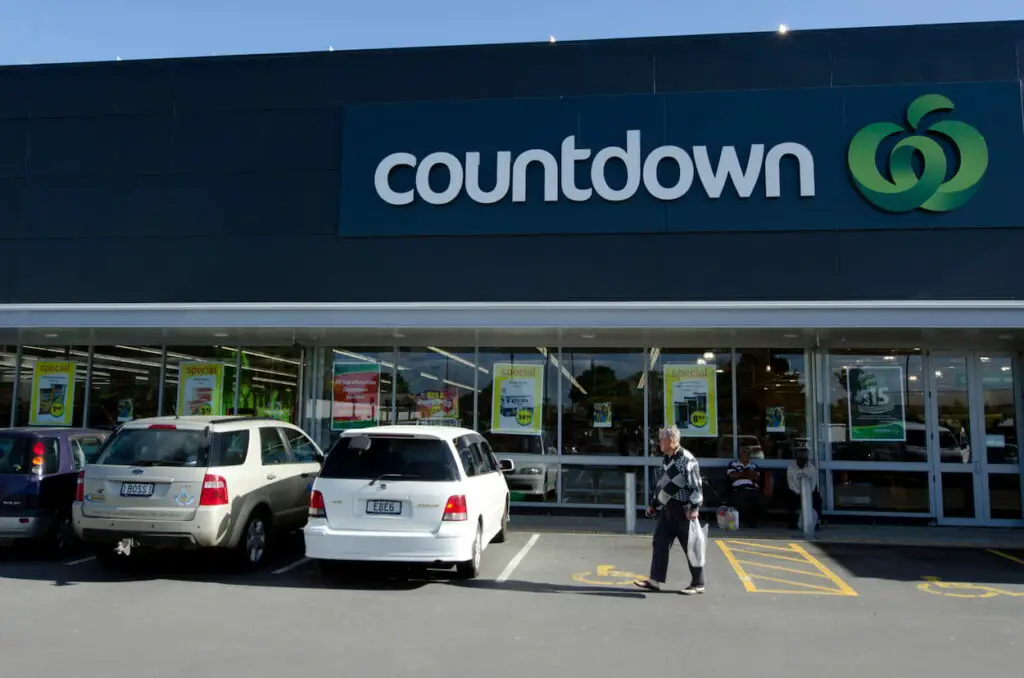
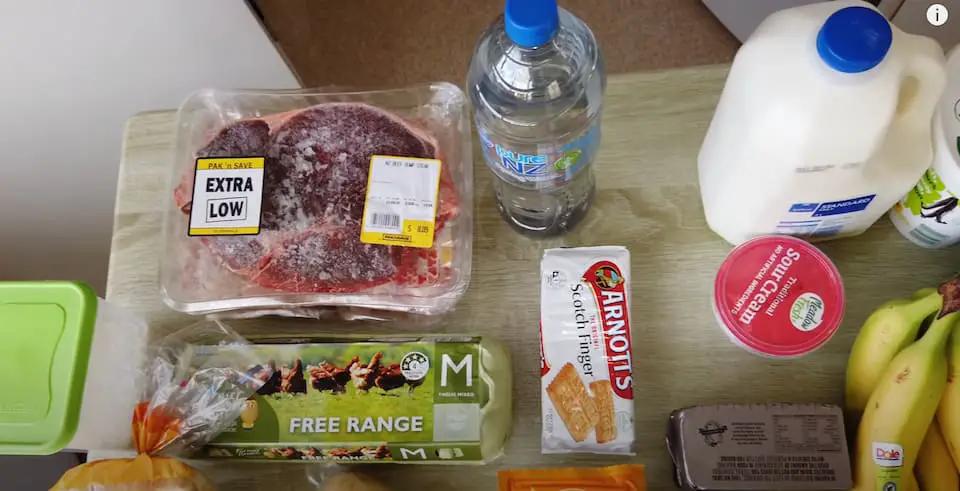
Unfortunately, supermarket prices are on a steady rise. Since 2021 there has been an increase of 23% just for the fruit and vegetable category.
Overall, New Zealand has three main supermarket chains:
- Pak’nSave
- Countdown
- New World
Where Pak’nSave is the cheapest out of the three. That said, food prices are high even here. The most expensive items are fresh veg and fruits, meat, chicken, fish, eggs, etc. But your monthly grocery bill will depend on the size of your family, your diet preferences, how often you cook at home, etc.
My monthly expenses for grocery shopping
Firstly, I buy all the groceries in New World, which is the most expensive supermarket. We simply don’t have a choice here. I spend, on average, about NZ$950 per month on groceries, and I mostly buy healthy food but nothing organic, vegan, or special. However, I mostly eat at home, so if you eat out several meals per day, you should factor this in.
Generally, I would recommend budgeting at least NZ$200 per week for groceries if you are single and eat mostly at home. A family with two children should have at least NZ$287 per week to spend on food.
Besides, you can use the services of HelloFresh, which is a fantastic option for someone short on time but still wanting to save a buck. You can cook their amazing, easy-done recipes, which will come to about NZ$7.99 per meal. That’s even cheaper than groceries.
2. Cost of eating out
Springily, but prices in restaurants and take-outs in New Zealand aren’t as high as it’s with groceries. Kiwis love their coffee and eggs Benedict, so, eating out is a common way of spending morning or afternoon.
Of course, there are plenty of options for a night out, e.g., dinner and drinks, but the choice and working hours are limited in smaller cities.
Some examples of restaurant and cafe prices in New Zealand are:
- Flat white: NZ$5
- Breakfast: NZ$20-25
- Burger: NZ$25
- A portion of fries: NZ$10
- Ice cream a scoop: NZ$5-7
- Beer 0,5: NZ$10-12
- Pizza: NZ$20-30
- A cake or muffin: NZ$6-8
- Salat: NZ$20-30
- Steak: NZ$30-40
- Fish: NZ$25 – 35
- Sandwich: NZ$8-12
- McMeal at McDonalds: NZ$15
- Cocktail: NZ$15
Cost of education and childcare
If you are moving to New Zealand with children or considering having kids when living here, childcare costs should be on your radar. A daycare for small children isn’t free but isn’t very expensive.
For children under 3 years, a daycare costs from NZ$260 to NZ$460 per week for full-time care (7:30 am to 5:30 pm). The exact amount depends on the childcare provider.
For children above 3 years, the New Zealand government subsidizes up to 20 hours per week. Hence, the cost is fully subsidized for up to 6 hours a day and up to 20 hours a week.
Primary, secondary, high school, and university
If you are on a work visa or have a residency in New Zealand, all school levels will be free for your children. Everyone has to pay for universities, whether Kiwi or international students.
Fees for domestic students are between NZ$6,500 and NZ$25,000 for undergraduate and postgraduate programs. At the same time, international students pay an average of NZ$40,000 – NZ$65,000 for a degree program.
To be eligible for domestic student fees, a student must be a New Zealand resident or permanent resident.
A significant difference, however, exists for international students who need to apply for a free-paying student visa. In that case, International fees apply, and a university degree becomes pretty pricey.
It’s much more affordable to study in non-English speaking countries, like in almost all EU states or Latin America, for example.
Insurance
There are a few essential insurances you might consider getting in New Zealand. That said, none of them is mandatory.
What type of insurance should you consider in New Zealand?
1. House insurance
House insurance makes sense for homeowners; if you are a tenant, your landlord probably already has it.
2. Health insurance
Health insurance isn’t necessary, as everyone with a work visa or residency gets access to free healthcare. If you don’t qualify or want to take health insurance to be on the safe side, there are a few options.
Companies like Cigna Global provide compressive expat insurance for New Zealand. Besides, you can take out coverage from New Zealand insurers like Southern Cross, or AA Insurance. The annual cost ranges depending on many factors, e.g., a provider, your age, health conditions, etc.
For example, as a 40-year-old, you can expect to pay anything from NZ$1,197 to NZ$2,784 per year.
3. Dental insurance
Dental insurance is also not mandatory, but dental work isn’t subsidized by the government. Therefore, you will pay for dental treatments out of pocket unless you have insurance.
However, in most cases, dental coverage is included in private health insurance, and there are only a few companies that offer stand-alone dental insurance. This includes Cigna Global and nib nz. The pricing of nib nz is as follows:
- Standard Everyday – from NZ$9.39 per week
- Premium Everyday – from NZ$14.99 per week
Lastly, Southern Cross has dental treatments included in its private insurance plan.
4. Contents insurance
Contents insurance makes sense if you rent a property and have a lot of possessions in the house. This insurance covers things like furniture, clothes, appliances, carpets, and curtains. The insurance company will compensate for these items if they are lost or damaged by a sudden, unforeseen and accidental event.
5. Natural disaster insurance
Another useful insurance cover for New Zealand is the policy for residential homes, land, and contents in the event of natural disasters.
Cover insures you from loss or damage from an earthquake, natural landslip, volcanic eruption, hydrothermal activity, or tsunami. There is also limited cover for storm and flood damage.
6. Life insurance
Residents of New Zealand can also get life insurance. This insurance will protect your family as they will get financial support if the policyholder dies.
7. Pet insurance (for dog and cat owners)
For furry pet owners, pet health insurance is recommended, especially if your pet is prone to illnesses.
8. Car Insurance
Lastly, car insurance isn’t mandatory, but most people in New Zealand have it. And what stops you from getting a cover anyway? Basic third-party liability insurance costs about NZ$300 to a maximum of NZ$500 per year.
Other expenses
1. Mobile plans and data
A basic plan from Vodafone with 2 GB data and 100 min costs NZ$25-NZ$30 per month. Currently, I pay NZ$45 per month for 10 GB and 100 min & sms.
Unlimited internet costs NZ$80 per month.
2. Gym membership
Gyms aren’t cheap in New Zealand, especially in cities with small choices. The average monthly membership is NZ$100. You can find many gyms in the NZ$125 – NZ$150 per month price range. They are of decent quality. That said, there are less expensive but less clean or functional gyms with rates of NZ$60 and even less per month.
3. Haircut
The cost of cutting your hair depends on your gender and length of hair. Of course, the hair salon you chose plays an even more significant role here.
An average haircut for a man costs about NZ$40, while it’s around NZ$100 for a woman.
Cost of entertainment
As we are done now with all the basic expenses people face day to day, entertainment is something that we choose to do and pay for. The best thing about New Zealand is that most hobbies and free-time activities are free. The outdoors is always there for you, 24/7, and at no charge.
However, if you want to do something other than riding a bike or hiking a mountain, here are some typical entertainment prices in New Zealand:
- Christchurch Gondola Ride: from $40
- Christchurch Tram: from $24
- Auckland Sky Tower General Admission Ticket: from $40
- Queenstown Skyline Gondola and Luge Ride: from $43
- Movie ticket: $16.50 – $21.50
- Wine tasting tour: from $20
- Tennis Court Rent: $18 /one hour
- Kiwi Park Queenstown: from $55
- Entry to Water Park: from $25
- Museum entry: from $20
- Alpaca Farm Tours: from $50
- Dolphin Encounter in Kaikoura: from $91
- Milford Sound Cruise: from $48
- Kawarau Zipride in Queenstown: from $48
Salaries in New Zealand

As you can see, the cost of living in New Zealand is pretty high, but do local salaries match up with the average expenses?
In 2022, the average salary in New Zealand for all occupations was about NZ$1,093 per week, which was about NZ$58,836 per year.
New Zealand ranks 4th across developed countries in terms of minimum wage; in April 2023, it’s NZ$22.70 per hour. At the same time, the average salary is NZ$58,000 NZD or US$36,301. However, it’s only an average; many people with university degrees earn more.
Did you know that in New Zealand, you can apply for government support via Work and Income if you don’t earn enough?
You can see the distribution of salaries across New Zealand on the graph below:
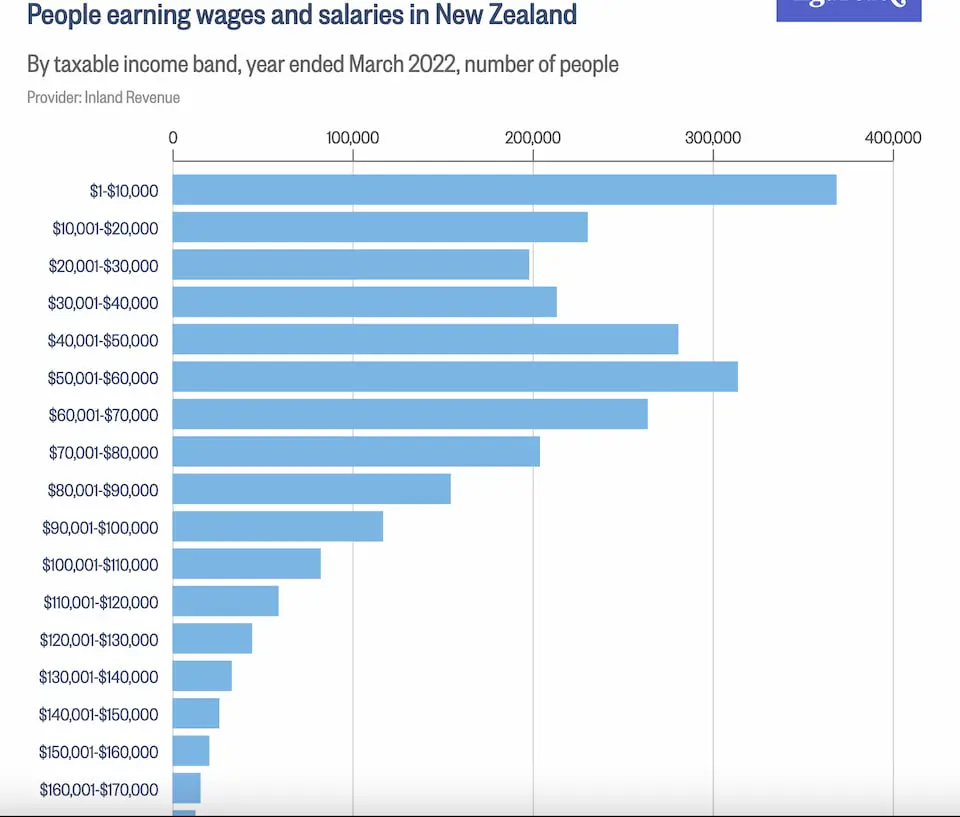
Ultimately, your salary will depend on your profession, seniority, and the city where you work. The highest salaries are paid in Auckland.
But you should look for a job that at least provides about NZ$3,000-NZ$4,000 (US$1,850 – US$2,500) per month so that you can manage the cost of living. A family will need to have a significantly higher income – at least NZ$5,000-NZ$6,000 per month.
For example, to live alone in Auckland, a person should have at least NZ$4,630 per month at their disposal, while a family needs around NZ$8,327 per month to live comfortably.
That means your gross annual salary must be at least NZ$70,000 for a single and NZ$140,000 for a family of four.
Christchurch is the most affordable big city in New Zealand, where a single person can live on as little as NZ$3,500 and NZ$7,000 for families.
Taxes in New Zealand
Compared to many other countries, taxes aren’t very high in New Zealand, with an average rate of about 25%. If you earn an average salary of NZ$58,836 per year, you will pay only 19.67% in taxes and can enjoy an annual take-home pay of NZ$47,265.
Below are the income tax rates in New Zealand for 2023 (NZ$):
- Up to $14,000: 10.5% tax rate
- $14,000 – $48,000: 17.5% tax rate
- $48,000 – $70,000: 30% tax rate
- Anything over $70,000: 33% tax rate
Cost of living situation in 2023
Here is some interesting data from Statistics New Zealand about income & expenses situation across several cities and earning groups.
According to Statistics, 34% of Christchurch residents earning between NZ$70,000 to NZ$100,000 said they only had enough money to survive, while 11% said they could not cover all their basic needs like food, shelter, and utilities. Keep in mind that the average salary across New Zealand is about NZ$58,000.
Almost half of Auckland households in the same income bracket say they are just able to make ends meet. Where 55% of Aucklanders cut down on heating their homes in order to save on electricity bills, while 52% do the same in Wellington, and 50% make the sacrifice in the Canterbury region.
The cost of living varies throughout New Zealand; while in Christchurch, NZ$100,000 will be considered good pay; this amount might not be enough in Auckland.
Consequently, even if you fall into the high-earners category, you also might struggle to stay afloat.
But why is it happening? The key factor contributing to the financial struggles many New Zealanders face is the rising cost of living. In 2022-2023 prices increased significantly, mainly due to the global recession and other world problems.
According to Stats New Zealand, the inflation rate increased to 6.9% in March compared to the same time last year.
Rising house prices add to this situation. According to recent research on disposable income and the cost of property, New Zealand is behind other Western countries. In OECD better life index, it ranks 40 out of 41 countries in the ratio of housing expenditure to income category.
Your spendings increase with the income
Another problem faced by New Zealanders is lifestyle inflation. The more you earn, the more you spend. It’s just a fact. Make sure you always keep an eye on your monthly expenses and come back to this article for updates on the cost of living in New Zealand.
Conclusion
As with any country in the world, there is no limit to how much you can spend. New Zealand’s living expenses are comparable to other developed countries like Australia, Canada, and the USA. The only difference is that salaries here tend to be lower.
Also read: Cost of living in New Zealand vs in the US.
Nonetheless, this country offers a fantastic quality of life and incredible nature, which you won’t find anywhere else. The solution to having a great life in New Zealand is to own your property, hopefully, have a small garden and a high-paying job.
This post contains affiliate links. The affiliate link means we may earn an advertising/referral fee if you make a purchase through our link, without extra cost to you. It helps to keep this blog afloat. Thanks for your support.

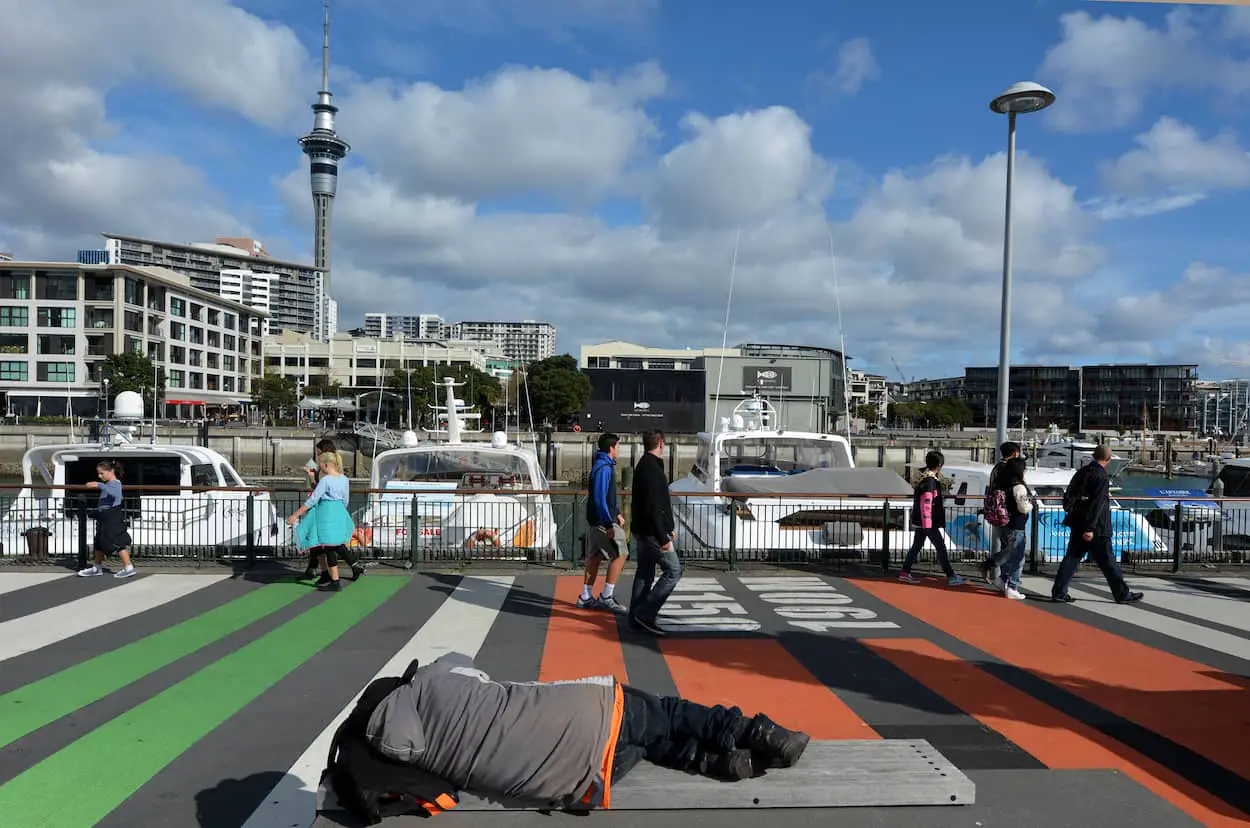
![17 Best And Worst Suburbs in Christchurch [2024 Guide]](https://simplenewzealand.com/wp-content/uploads/2023/09/Park-Hagley-CHCH-768x512.jpg)
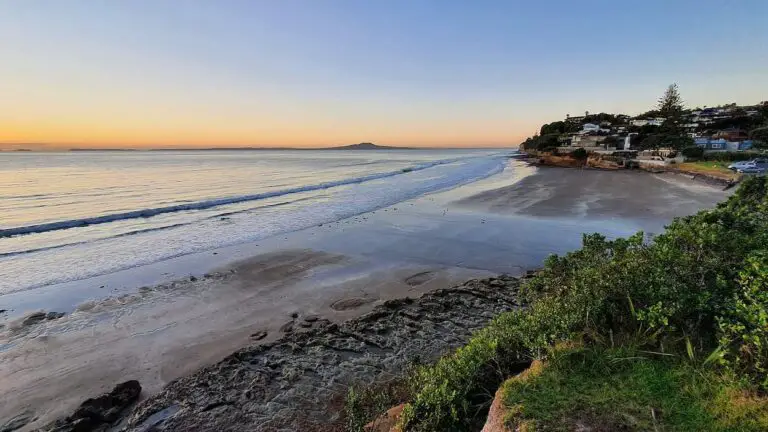
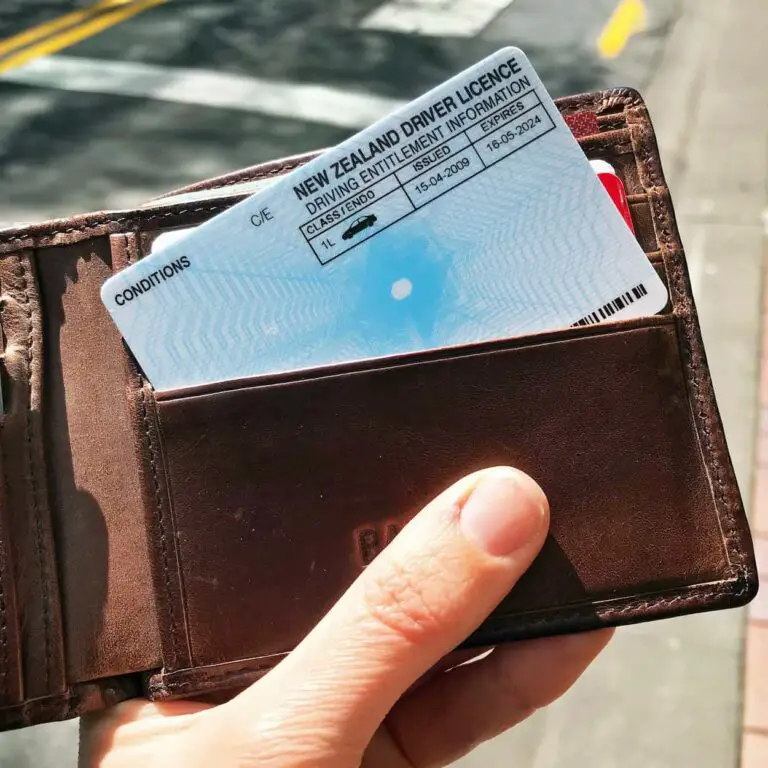
![What Is A Good Salary in New Zealand? [2024]](https://simplenewzealand.com/wp-content/uploads/2022/11/thomas-coker-M8fYycGWuMA-unsplash-768x432.jpg)
![Cost of Food in New Zealand: How Much To Budget? [2024]](https://simplenewzealand.com/wp-content/uploads/2023/01/Depositphotos_363854088_L-768x512.jpg)
